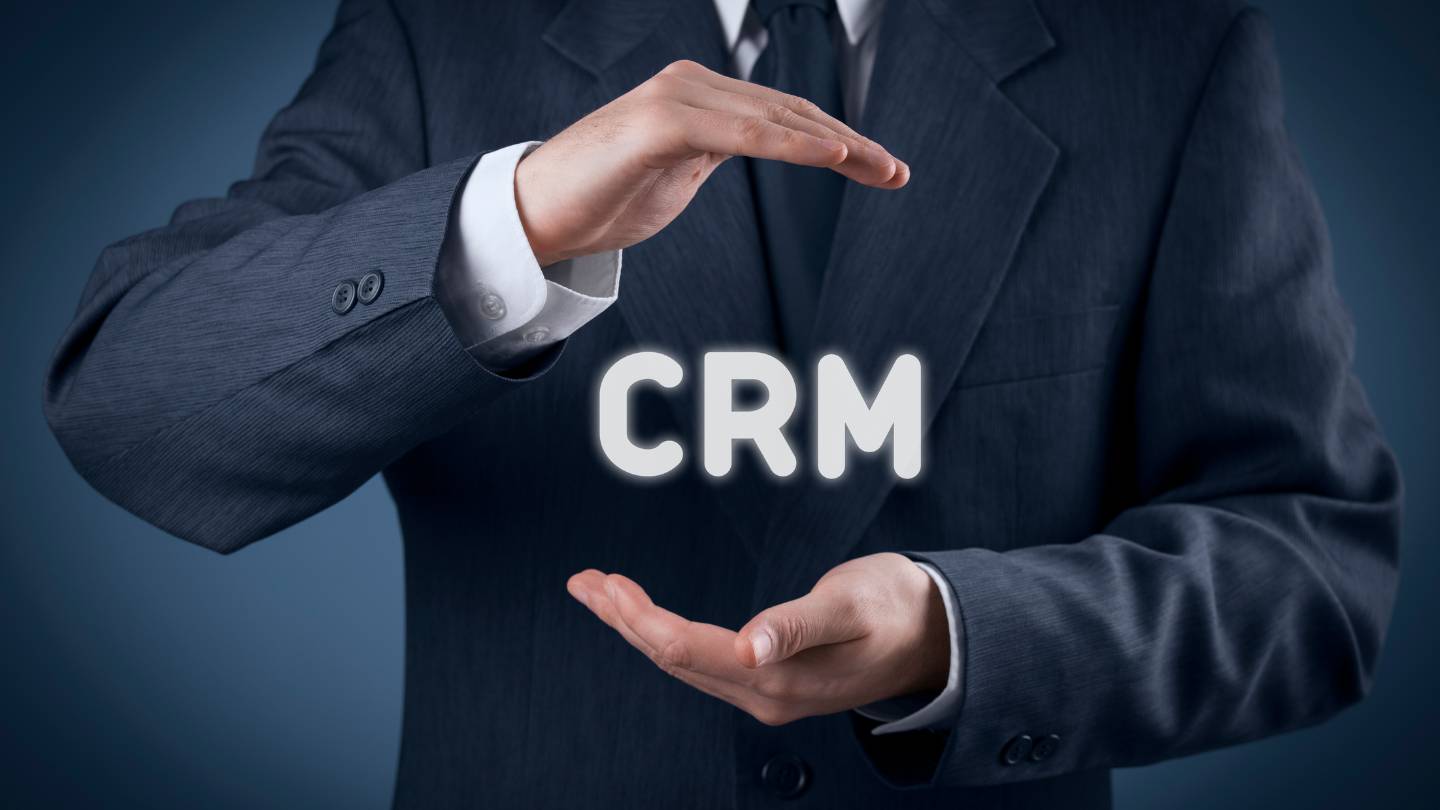Top Ways How CRM-EHR Integration Improves Patient Engagement

Integrating CRM with EHR systems significantly enhances patient engagement by delivering personalized care, streamlining communication, and improving overall healthcare delivery. This article explores how CRM EHR integration improves patient engagement and meets the growing demands for personalized healthcare, proactive management, and efficient patient communication in 2024 and beyond.
Key Takeaways
- In 2024, patient engagement emphasizes personalized care and digital convenience, requiring healthcare providers to respect individual preferences and enhance communication.
- Integrating CRM with EHR systems facilitates personalized patient interactions, proactive health management, and efficient communication, improving overall patient satisfaction and outcomes.
- Despite the benefits, challenges such as data security, workflow alignment, and technical issues must be addressed for successful CRM-EHR integration, necessitating careful planning and stakeholder collaboration.
Understanding Patient Engagement
Patients anticipate that healthcare providers will deliver services tailored to their unique genetic profiles, lifestyle choices, and individual preferences. This movement towards customization marks a pivotal shift in the provision of medical care. With an increased desire to participate actively in their own treatment options, patients favor a joint effort in managing health matters—a setup where they feel valued and empowered through acknowledged decision-making roles.
Digital advancements have been deeply integrated into the fabric of the healthcare industry as well. The widespread adoption of digital tools like virtual consultations and mobile applications provides immediate access to electronic health records (EHRs), aligning with modern expectations for convenience and operational efficiency. These innovations not only facilitate patient engagement by providing straightforward access to personal health data but also improve satisfaction levels through more efficient processes such as easily arranging appointments or renewing prescriptions online.
Due to technological enhancements, cultural competency has risen as a vital element within patient engagement strategies. Recognizing that patients are diverse with specific requirements pertinent to their backgrounds necessitates careful consideration from those delivering healthcare services—prompting providers today toward efforts aimed at affording culturally considerate and embracing treatments.
As we navigate this evolved landscape of patient interaction demands – underscored by customized care considerations powered by EHR accessibility—the significance becomes clear regarding how integration between Customer Relationship Management (CRM) systems can adequately address these contemporary anticipations within the realm of electronic health management.
The Role of CRM in Enhancing Patient Engagement
Healthcare providers have experienced a transformative change in managing patient interactions thanks to Customer Relationship Management (CRM) systems. These systems play a vital role in boosting patient engagement, enabling swift and effective communication that encourages patients to take an active part in their own healthcare processes. The fusion of CRM with Electronic Health Record (EHR) systems equips healthcare professionals with the tools for delivering individualized communication and timely follow-ups, thereby elevating patient care satisfaction levels and enhancing health outcomes.
CRM platforms are particularly adept at providing personalized experiences due to their capacity for sorting through vast quantities of patient data. Healthcare providers can utilize these insights from segmented data to customize communications based on specific preferences or needs unique to each individual. Such targeted approaches not only bolster engagement rates but also help build stronger emotional bonds between patients and caregivers.
Benefits stem from the integration between CRMs and EHRs, which sharpens analysis capabilities regarding patient information, leading directly toward richer experiences and improved clinical results for individuals under care. By bringing together CRM and EHR technologies, we witness the emergence of a unified technological ecosystem dedicated entirely towards more streamlined management of crucial healthcare information.
This synergistic approach enhances decision-making related to person-centered treatment plans while allowing for comprehensive evaluations of how patients perceive their care services—informing ways providers might optimize future engagement strategies. In essence, when CRM is harmoniously integrated into existing EHR frameworks, it serves as an engine powering up heightened degrees of involvement by facilitating direct personalization across various modes of interaction along with anticipatory service provision aiming squarely at meeting evolving consumer expectations within our contemporary digital landscape.
Key Benefits of Integrating CRM with EHR Systems
Integration of CRM with EHR significantly improves patient engagement and satisfaction by delivering a customized and expedient healthcare experience. This integration also fosters enhanced collaboration between healthcare providers, leading to improved care coordination and management. The amalgamation of CRM-EHR operations streamlines workflow efficiency and minimizes errors from manual data entry, which ultimately elevates the quality of patient care.
Subsequent sections will explore in greater detail the distinct advantages of integrating CRM with EHR systems. These include tailored interactions with patients, proactive management of their health, and effective tracking of all communications with patients.
Personalized Patient Interactions
Unified access to patient information through CRM-EHR integration offers healthcare providers a complete view of patient histories, preferences, and needs. This comprehensive view enables the development of customized treatment plans. Insights from patient data enhance emotional connectivity with patients, improving their overall experiences and outcomes.
This personalized approach ensures that patients feel valued and understood, fostering trust and loyalty. Healthcare providers can deliver proactive healthcare services by addressing patient needs more effectively and efficiently, thus improving patient engagement and personalizing patient interaction satisfaction.
This level of personalized care is what patients expect in today’s healthcare environment, making CRM-EHR integration a vital component of modern healthcare delivery.
Proactive Health Management
Integrating CRM with EHR significantly enhances proactive health management by actively involving patients via reminders, notifications, and alerts. The automation of functions such as sending out appointment reminders and follow-up prompts plays a crucial role in maintaining consistent patient engagement. This ensures that individuals remain compliant with their healthcare regimens. Such preventive actions do more than just improve adherence to treatment plans. They also diminish the chances of missed appointments and non-compliance.
Studies show a direct relationship between heightened patient engagement and improved clinical outcomes, along with positive evaluations for healthcare providers. With insights gleaned from integrated CRM systems, healthcare providers can pinpoint internal issues and upgrade their service offerings. Employing this forward-looking strategy in managing patients leads not only to enhanced health results but also elevates levels of patient satisfaction.
Efficient Patient Communication Tracking
Integrating CRM systems with EHRs significantly boosts the efficiency of tracking patient communications. By consolidating various channels, such as phone calls, emails, and text messages, into a single system, healthcare providers can ensure that every interaction with patients is captured without fail. This comprehensive integration simplifies processes and enhances workflow effectiveness for keeping track of all patient correspondence.
Sending automated reminders via texts or emails about forthcoming appointments increases patient engagement while decreasing the incidence of no-shows. When an appointment is missed, prompt notifications enable health service professionals to conduct timely outreach efforts, thus delivering proactive healthcare services to their patients.
Ultimately, these advancements in communication management lead to improvements in both satisfaction levels and outcomes for patients by ensuring consistent follow-up care and meticulous attention throughout their interactions within the healthcare system.
Overcoming Challenges in CRM-EHR Integration
Healthcare providers face various obstacles when merging CRM and EHR systems despite the considerable advantages. These challenges include difficulties with interoperability, substantial expenses, and extensive time necessary for training. Transitioning to a value-based care model and overcoming barriers in communication remain significant hurdles. It is crucial as well to maintain adherence to regulatory requirements regarding data security and safeguarding patient confidentiality.
For healthcare providers to achieve effective integration of CRM with EHR systems, it’s imperative they tackle the intricacies of combining patient engagement strategies with clinical information comprehensively. This involves meticulous preparation by defining objectives, recognizing involved parties, and anticipating potential issues at hand. Subsequent sections will delve into particular challenges, such as ensuring data security compliance while aligning workflows correctly, among other technical concerns requiring resolution.
Data Security and Privacy Concerns
Ensuring the privacy of patient data is crucial when integrating CRM and EHR systems, as it helps preserve patient confidentiality, fosters trustworthiness, and mitigates risks such as identity theft and fraud. Healthcare organizations are obligated to adhere to HIPAA regulations, among others, during this integration process in order to maintain the security of patient information. Effective security protocols like encrypting data, implementing access controls, and performing consistent security checks are instrumental in protecting delicate patient information.
To prevent any improper handling or misuse of sensitive patient data within new EHR systems, it’s imperative that healthcare personnel receive proper training. Performing comprehensive risk assessments can highlight potential areas for a breach in security. Proactively addressing these issues is critical for upholding patients’ confidence and guaranteeing the secure management of their health details with an aim to steadfastly safeguard patient data.
Workflow Alignment
Workflow misalignment is a significant challenge when integrating EHRs and CRMs in a healthcare organization. Engaging stakeholders from various departments can help identify potential misalignment issues during the integration process. Early involvement of all relevant stakeholders ensures that integration needs are effectively identified and addressed.
Collaboration is crucial in CRM-EHR integration as it ensures alignment on integration objectives and clarity of roles. Utilizing insights from integrated CRM systems allows healthcare providers to address service delivery issues and enhance patient care strategies.
Analyzing existing workflows thoroughly before merging systems ensures effective integration.
Technical Challenges and Solutions
Technical challenges such as data migration issues and data incompatibility often arise when integrating EHR and CRM systems. Careful planning and execution are necessary to avoid potential data loss and ensure interoperability. Using a standardized data exchange framework like HL7 or FHIR can facilitate effective data mapping and integration.
System downtime during integration efforts can disrupt healthcare services and impact patient care. Planning the integration process and considering system downtimes minimizes disruptions. Proactive measures like compatibility tests and collaboration with integration specialists can help mitigate technical challenges during healthcare integration.
Best Practices for Successful CRM-EHR Integration
Successful CRM-EHR integration requires careful planning, stakeholder collaboration, vendor coordination, and data standardization. Deploying CRM software in healthcare organizations requires ensuring a smooth transition with minimal disruption to daily operations. Developing a healthcare CRM system requires understanding specific needs and ensuring seamless integration.
The following subsections provide detailed best practices for stakeholder collaboration, vendor coordination, and continuous monitoring and improvement.
Stakeholder Collaboration
Incorporating stakeholders in the entire integration process can facilitate a seamless shift and tackle potential issues. To alleviate pushback during the merging of EHR with CRM, it’s essential to conduct an extensive analysis of existing workflows, involve relevant parties, offer comprehensive training for staff members, and introduce modifications incrementally. Systems that combine CRM effectively aim to diminish administrative workloads, resulting in shorter waiting periods for patients requiring services.
Enhancing user training programs for systems that blend both functions by integrating feedback can significantly tailor them to meet users’ requirements more precisely. Such a joint effort ensures that the system is designed around real demands and boosts patient engagement overall.
Vendor Coordination
Collaboration with vendors who specialize in seamless integration is essential to guarantee that various systems can interact without any hitches throughout the integration phase. By effectively managing vendor relations, healthcare providers can resolve compatibility concerns and certify that the integrated system operates correctly.
Healthcare providers must maintain close ties with these vendors to make certain their unique requirements are fulfilled and any technological hurdles are quickly tackled. Such cooperation is critical for achieving a successful CRM-EHR integration.
Continuous Monitoring and Improvement
Ongoing surveillance and periodic refinements are essential to keep the CRM functioning optimally, adapting it to the changing requirements of healthcare providers and their patients. Opting for interoperable solutions could lessen the necessity for elaborate custom coding, thereby diminishing expenses and simplifying processes.
Involving end-users early in the prototype stage coupled with thorough testing is key to discovering glitches and confirming system dependability. The use of smart caching strategies can enhance data transfer effectiveness when integrating CRM with EHR systems.
This continuous cycle of observation and enhancement ensures that the combined framework consistently boosts patient involvement while heightening their satisfaction levels.
Summary
Integrating CRM with EHR systems can revolutionize patient care by enhancing involvement, satisfaction, and communication among healthcare providers. Sequence Health specializes in these transformative solutions, offering robust EMR integration to streamline your practice and elevate patient experiences. Discover how Sequence Health can tailor a solution to fit your needs and propel your healthcare services to new heights. Visit us to learn more and take the first step towards enhanced healthcare delivery.
Frequently Asked Questions
What are the main benefits of integrating CRM with EHR systems?
Integrating CRM with EHR systems significantly enhances personalized patient interactions and proactive health management. This collaboration leads to more efficient communication tracking and ultimately results in improved patient satisfaction and better care coordination.
How does CRM-EHR integration improve patient engagement?
Integration of CRM with EHR boosts engagement among patients through the facilitation of customized communication and prompt follow-ups, encouraging patients to play a more significant role in their own healthcare experience. Consequently, there is an uptick in patient satisfaction as well as better compliance with prescribed treatment regimens.
How can healthcare providers overcome data security concerns during CRM-EHR integration?
Healthcare providers can effectively address data security concerns during CRM-EHR integration by strictly adhering to HIPAA regulations and implementing robust measures such as data encryption, access controls, regular security audits, and comprehensive risk assessments. These steps ensure the protection of sensitive patient information.









